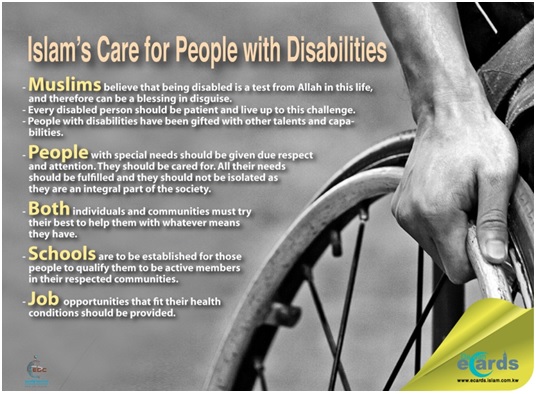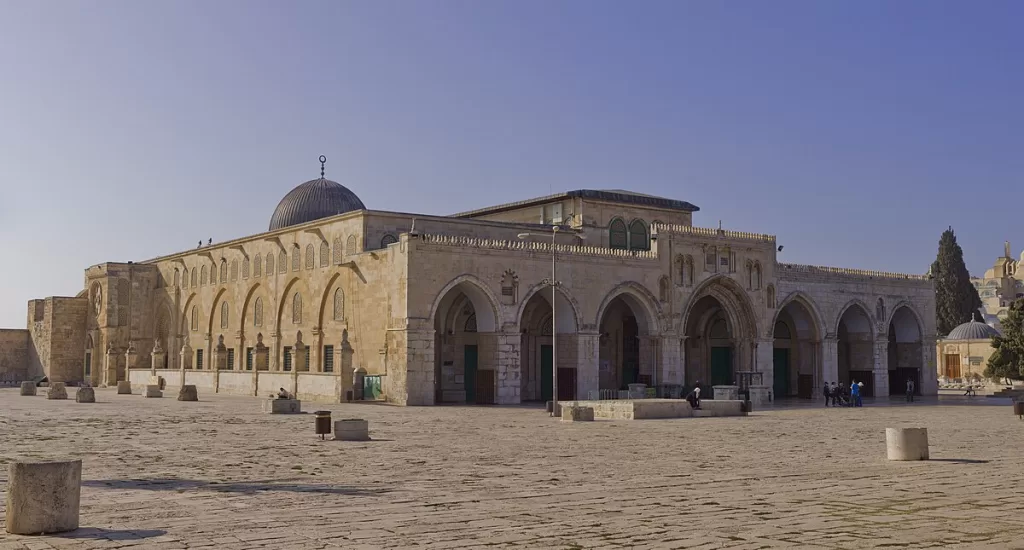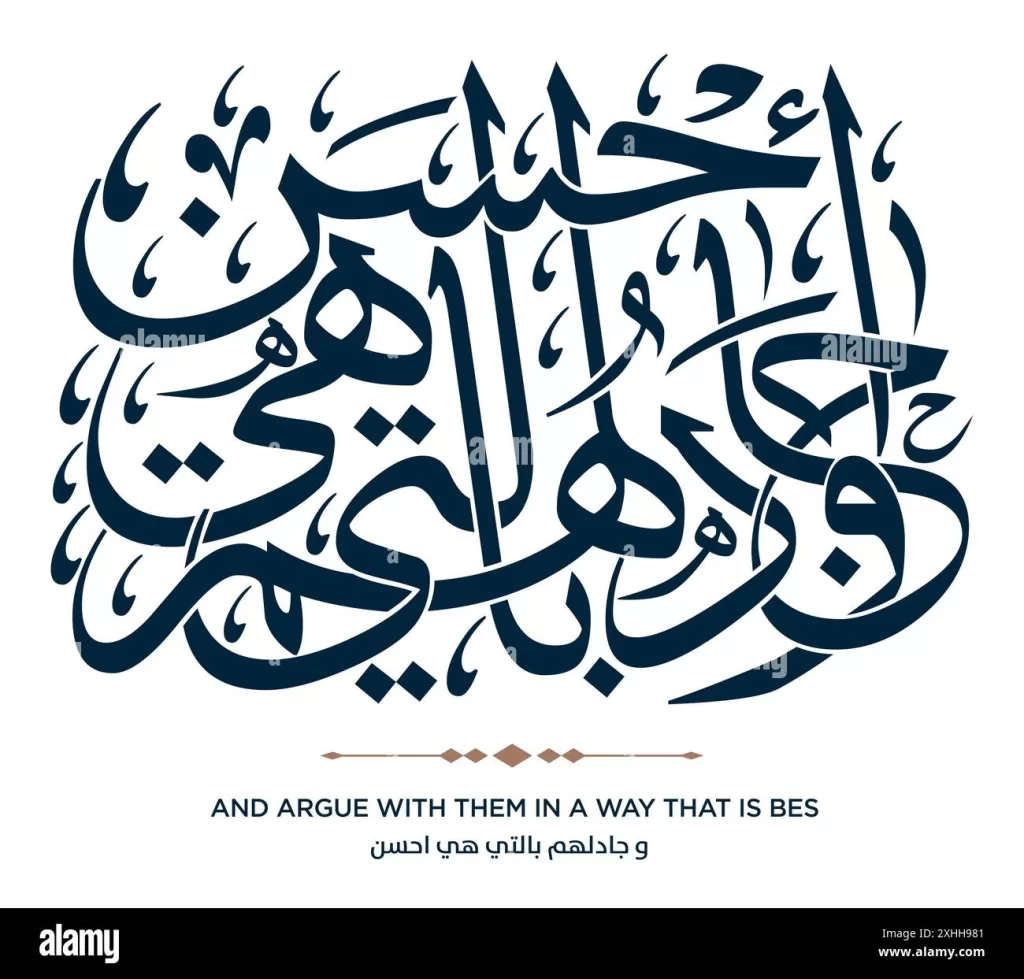The article is published in Wasat no. 33/Jun 2020, The original source can be accessed here.
The Malay version of the article can be read here (part 1) and here (part 2).
————————
By Muhammad Haniff Hassan

Wasatiyah (balance and moderation) in practicing Islam does not only mean avoiding violence, harshness and extremism. More importantly, it is about manifesting the Prophet’s mission as “rahmah to the universe” (the Qur’an, 21:106).
Regardless how the word “rahmah” is conceptualised, every Muslim will agree that it should encompass compassion, kindness, benevolence and all related synonyms because it is the root word for God’s two beautiful names, “Al-Rahman” (The Most Compassionate) and “Al-Rahim” (The Most Merciful).
“Rahmah” then becomes the value that would shape Muslims’ behavior and conduct because these two beautiful names are not merely descriptions of God, they represent the standard and code to be emulated. Thus, Muslims too must be the most compassionate and merciful towards all of God’s creations, regardless whether they are Man, animals, plants or whether they are Muslims or non-Muslims.
“Inclusive” is the word often used today to describe this idea of an all-encompassing “rahmah”. However, there is imbalance in its use and application among those who speak about and promote it. It is biased towards extending “rahmah” to non-Muslims only. Its extension to special needs persons (SNP) across all faiths is often neglected.
This article seeks to highlight Islam’s positive viewpoint and teachings towards SNP as an integral part of an inclusive meaning of “rahmah”. By this, it is hoped that the current neglect towards SPN could be addressed at the level of Islamic institutions such as services and facilities at mosques, madrasahs and Muslim organisations.
Generally, there is an inadequate amount of programs and plans for SNP within Islamic institutions here vis-à-vis their religious needs i.e. Islamic learnings for the deaf, blind and autistic individuals. Their social welfare needs remain largely catered for and dependent on national social organisations belong to government and civil societies. Although the design of mosques today has incorporated features for SNP, there is still a big room for improvement for other facilities.
This has to change. Not only does it not represent the true meaning of the Prophet’s mission, how people of special needs are being treated in society is an important contemporary issue through which Islam and Muslims will be judged by others.
The change should begin from promoting the right understanding of SNPs and Islam’s standpoint towards them, which is the focus of this article.
Knowing SNP
SNP is defined as,
“Those whose prospects of securing, retaining places and advancing in education and training institutions, employment and recreation as equal members of the community are substantially reduced as a result of physical, sensory, intellectual and developmental impairments… as a result of congenital causes, or are acquired later in life, as a result of traffic/industrial accidents or medical conditions such as stroke or infections.” (Sgenable.sg)
Physical impairment refers to “a total or partial loss of bodily functions, such as the ability to walk or fine motor skills, or a total or partial loss of a part of the body” such as muscular dystrophy, cerebral palsy, osteogenesis imperfecta (brittle bone disease), spina bifida and spinal muscular atrophy for congenital disability, and loss of limb due to traffic or industrial accidents or loss of body functions due to stroke for acquired disability.
Sensorial impairment refers to, a) hearing disability in the form of partial or complete loss of hearing in one or both ears, and b) visual disability in the form of significant visual loss that cannot be corrected by optical lenses, medication or surgery.
Intellectual impairment is characterised by IQ measurement and limitations in academic, social and practical functioning. A mild intellectual disability is measured by a person’s IQ score of 50-70 and a low and severe intellectual disability is below 50.
Developmental impairment is disability in physical, learning, language and behaviour areas. The condition occurs to a person during the developmental period, impacts one’s day-to-day functioning and, usually, is a life-long condition. Examples of the condition is autism, cerebral palsy, down syndrome, epilepsy and ADHD.
A few points can be highlighted from the above. Firstly, not every impairment can be visually detected because some impairment is not physical and others are hidden in a person’s body or by his attire.
Secondly, a person with intellectual impairment may look normal outwardly such as those who are having mental and psychological condition that does not affect his physical functions and, as a result, the person might not have been treated appropriately when he shows abnormal or anti-social behavior in public places.
Thirdly, mental disability is not totally a psychological condition because a person may experience mental illness due to impairment in his physical function such as the inability of his body to produce brain chemicals which in turn causes occurrences such as hallucinations.
Islam and SNP
First and foremost, Islam regards SNP as humans – God’s most honoured creations as mentioned in the Qur’an (17:70).
The honour bestowed to mankind in this verse applies to all human beings. They are equals regardless of faith, ethnicity, social status and physical condition. Thus, it is an anathema to the religion that SNPs’ welfare and needs including access to religious guidance and institution are neglected or marginalised .
Secondly, Islam regards SNP as part of God’s diverse creations. Their existence is not without reason (the Qur’an, 3:191, 23:115, 38:27) and they are created for positive purposes – to know and learn from each other as mentioned in (the Qur’an, 49:13).
Islam teaches that all men are created with strengths and weaknesses and none is perfect. An ordinary person may be free from any impairment but is still imperfect with many other weaknesses. Experiences show that many SNPs are bestowed with special abilities such as talents in arts and photographic memory. Muslims, thus, should regard the presence of SNP positively. They should be helped to discover their hidden potentials, strengths and talents, just like any individual. Muslims must be patient with their imperfections, weaknesses and impairments, instead of viewing them as a liability to others (the Qur’an, 25:20).
Thirdly, Islam regards impairments in SNPs as part of life challenges and tribulations mentioned in the Qur’an (21:35 and 67:2), not a divine punishment or due to sins because God’s test on Man is not only in the form of hardship or impairments, but also in the form of bounties and prosperity. Also, Islam holds that a person is not burdened by another person’s sin (the Qur’an, 35:18) and, thus, congenital impairment cannot be regarded as a punishment or due to sin because every child is born sinless.
Fourthly, a person’s standing in Islam is not based on his physical look and condition, but on the value of taqwa (the Qur’an, 49:13). A SNP may be may be closer to God due to his piety and devotion than a normal Muslim who is despised for his arrogance and sins.
Virtues in SNP
Islam enjoins Muslims to view SNPs as special persons in view of virtues bestowed upon them by God and His Prophet.
Among the virtues or privileges of SNPs in Islam is that they will be rewarded with greater rewards for every good deeds performed as compared to ordinary Muslims. The extra reward is to compensate for the hardship that SNPs have to endure due to their conditions.
This can be implied from the Prophet’s saying,
“Allah said: If I deprive my slave of his two beloved things (i.e., his eyes) and he remains patient, I will let him enter Paradise in compensation for them.” (Narrated by Al-Bukhari)
“One who is skilled in the Qur’an is associated with the noble, upright recording angels, and he who falters when he recites the Qur’an and finds it difficult for him will have a double reward.” (Narrated by Al-Bukhari, Muslim and Abu Dawud)
SNPs are also special because the Prophet regarded them as the ummah’s source of divine help and support. God is more attentive to their prayers and needs and to those who are always for them. This is reported in hadiths,
“Seek among your weak ones, for you are given provision and help only because of the weak amongst you.” (Narrated by Al-Bukhari, Abu Dawud, Ahmad dan Al-Turmuzi)
Al-Nasa’ii narrates additional phrase, “…because of their supplication, their prayer, and their sincerity.”
Some of SNPs could be regarded as dwellers of heaven (ahl al-jannah) in this world because they are born with mental impairment that would free them from any taklif. Examples of such SNPs are people with severe down syndrome. The condition makes their inherent pure condition intact through their lives. Thus, heaven would be the assured place of return after death.
SNP Rights
Islam recognises SNPs as equal to normal persons in rights. SNPs should not be treated less in basic rights than any person due to their conditions. However, some points need to emphasised here in view of the prevalent problems experienced by SNPs in our current society.
Firstly, Islam emphasises the pertinence of a fair, just and equal treatment. In other words, any form of discrimination to a person for his physical condition is forbidden. This point can be implied from God’s counsel to the Prophet when he chose to turn away displeased from the presence of Abdullah bin Um Maktum, a blind Muslim, while hosting the pagan Meccan nobles for the purpose of inviting them to Islam. This incident is recorded in the Qur’an (the Qur’an, 80:1-16).
Secondly, Islam emphasises the importance of protecting the SNPs personal honour which is often exposed to abuse. Islam forbids mockery, insult, bully and abuse towards SNPs. The Prophet said in hadiths;
“Allah curses anyone who misguides a blind person and leads him away from the path.” (Narrated by Al-Bukhari)
“Arrogance means ridiculing and rejecting the Truth and despising people.” (Narrated by Muslim)
Thirdly, Islam makes rendering assistance to and taking care of SNPs’ life needs a fard kifayah (collective obligation) so they can live a comfortable and safe life. Examples are in the form of provision of caregiver, helper, food, healthcare, house, education, work and monetary assistance.
This can be deduced from a verse in the Qur’an,
“[All of you, O believers, are brethren: hence.] no blame attaches to the blind, nor does blame attach to the lame, nor does blame attach to the sick [for accepting charity from the hale], and neither to yourselves for eating from your [children’s] houses, or your fathers’ houses, or your mothers’ houses, or your brothers’ houses, or your sisters’ houses, or your paternal uncles’ houses, or your paternal aunts’ houses, or your maternal uncles’ houses, or your maternal aunts’ houses, or [houses] the keys whereof are in your charge! or [the house] of any of your friends; nor will you incur any sin by eating in company or separately. But whenever you enter [any of these] houses, greet one another with a blessed, goodly greeting, as enjoined by God. In this way God makes clear unto you His messages, so that you might [learn to] use your reason.” (The Qur’an, 24:61)
This verse encourages Muslims to practice “open house policy” for their daily meals. In contemporary context, the verse becomes the basis for a “Soup Kitchen” for the disadvantaged in society which includes SNPs.
However, the spirit of the verse could be extended to other types of assistance too. For this reason, history records initiatives for SNPs by Muslim caliphs such as Umar bin Al-Khattab (the Second Caliph), Al-Walid bin Abdul Malik (the Sixth Umayyad Caliphs) and Umar bin Abdul Aziz (the Eighth Umayyad Caliphs). They ordered the setting up of a registrar of the needy, poor and SNPs to facilitate assistance to them such as the provision of helpers and caregivers.
Fourthly, Islam recognises the SNPs’ right to education and personal development and makes the fulfillment of such rights a collective obligation upon Muslims. SNPs should have equal access and opportunity to academic education and vocational training. The religious institutions in Muslim community should thus ensure that religious guidance and learning are accessible and catered to SNPs.
Fifthly, Islam permits the rule of rukhsah (concessions) for SNPs when performing their religious obligations. There are numerous rules of rukhsah for SNPs which cannot be elaborated here due to space constraints. For example, they are allowed to perform their prayers in manners that suit their conditions even if they are distinct from that of ordinary Muslims. Thus, religious institutions should strive to accommodate these rukhsahs for them or provide necessary means for them to practice these rukhsahs.
The Prophet and SNPs
The Prophet, who is the best role model for Muslims, had many companions who were SNPs. The Qur’an and hadiths have records of the Prophet’s interactions with them which provide insights and inspirations for Muslims.
Abu Ubaidah Abdullah bin Al-Jarrah
Al-Jarrah is a senior companion of the Prophet. It was reported that he had a limp leg. However, the Prophet treated him the same like other companions in providing religious guidance to the extent he could attain the honorable status of one of “The Ten Promised Paradise”. He was given the title of “Amin Al-Ummah” (the Custodian of the Ummah) by the Prophet (narrated by Al-Bukhari). The Prophet gave him opportunities to develop his potential and serve him in various capacities. He was entrusted as the Prophet’s zakat collector and preacher to Arab tribes who lived far away from Medina. He was appointed as commander of the Prophet’s military expeditions. His potential grew due to the Prophet’s indiscriminative treatment of him that he was entrusted by Umar bin Al-Khattab, the Second Caliph, to be his commanding general when battling the powerful Roman army in Sham (the Levant). Before his death, Al-Khattab wished that Al-Jarrah would be alive so he could appoint him as the caliph after him.
Abdullah bin Um Maktum
He was among the earliest persons who embraced Islam. Although he was blind, the Prophet trusted him to be his deputy overseeing Medina affairs when he was away for travel or military expedition. He was also entrusted as muazzin (caller of azan) at the Prophet’s mosque. During Al-Khattab’s rule, he was assigned as the standard bearer of the Muslim army battling Persian Empire in Iraq.
`Amr bin Al-Jamuh
Al-Jamuh was a lame. Although his condition exempted him from jihad duty, Al-Jamuh appealed to the Prophet that he could be given the privilege to participate in the Battle of Uhud, because he had missed the Battle of Badr the year before. The Prophet gave permission because of his insistence. He fought bravely and gained martyrdom in the battle. When the Prophet found his body after the battle, he said, “I witness that he is walking here and there in Paradise and his lame leg is set right.” (Narrated by Ahmad)
Julaybib
Julaybib was a dwarf. He also had other physical deformities. The Prophet recognised Julaybib’s natural instinct despite him being a SNP. The Prophet suggested to him marriage and recommended a beautiful righteous Muslimah. The story of Julaybib’s marriage to the girl was recorded in books of tafsir being the story behind the revelation of verse 36, surah Al-Ahzab.. The Prophet also did not deny Julaybib’s wish to participate in jihad and as a result, he was honoured with martyrdom after killing seven enemy combatants. A hadith reported that the Prophet himself laid Julaybib’s body in the grave and said, “He is part of me and I am part of him.” (Narrated by Muslim)
There are few hadiths that highlight the Prophet’s exemplary treatment of SNPs. A hadith reports the Prophet attending to a lady, who experienced epileptic episodes,
“Shall I show you a woman of the people of Paradise? I said: Yes. He said: This black lady came to the Prophet and said: I get attacks of epilepsy and my body becomes uncovered; please invoke Allah for me. The Prophet said (to her): If you wish, be patient and you will have (enter) Paradise; and if you wish, I will invoke Allah to cure you. She said: I will remain patient, and added, but I become uncovered, so please invoke Allah for me that I may not become uncovered. So he invoked Allah for her.” (Narrated by Al-Bukhari)
Another hadith reports the Prophet’s empathy towards a lady with mental illness,
“Anas reported that a woman had a partial derangement in her mind, so she said. Allah’s Messenger, I want something from you. He said: Mother of so and so, see on which side of the road you would like (to stand and talk) so that I may do the needful for you. He stood aside with her on the roadside until she got what she needed.” (Narrated by Muslim)
Based on the above stories and hadith reports, the following conclusions could be concluded about the Prophet and his SNP companions, that the Prophet;
• treated SNPs with kind and compassion
• did not discriminate SNPs from basic rights
• allowed SNPs to develop and grow their potentials
• opened opportunities for SNPs to contribute in society
• treated SNPs on merit (taqwa and contribution) which allowed them to gain high status in the eye’s of God
• practiced inclusivity and openness towards SNPs.
Closing remarks
Muslims who believe that Islam propagates good values for mankind should be in the forefront in providing good services and treatment for underprivileged SNPs. It is through actions that such belief could be proven true to mankind.
Concrete steps and plans are needed today to address inadequacy of current religious institutions in rendering basic religious services to Muslim SNPs.
Local asatizahs must also take initiatives to research and write special fiqh for SNPs tailored to the Singaporean context as reference and guidance for their ibadah needs.


